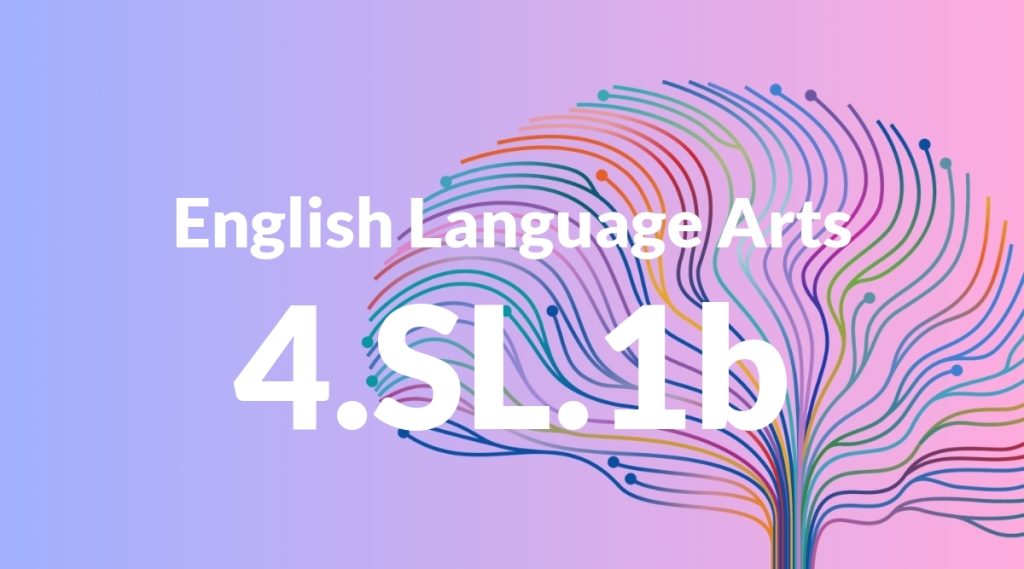Standard: 4.SL.1b – Follow agreed-upon rules for discussions and carry out assigned roles.
Grade level: Grade 4
Subject: English Language Arts
Domain: Speaking & Listening
Teacher Overview
This standard emphasizes the importance of students following agreed-upon rules for discussions and carrying out assigned roles. It is crucial for developing effective communication and collaboration skills, which are essential for academic and social success. Students should already be able to communicate clearly, listen actively, and understand basic group dynamics and roles.
Mastering this standard will prepare students for more complex collaborative tasks, enhance their leadership skills, and improve their ability to communicate respectfully and effectively.
Common Misconception 1
Some students may feel that their contributions are not significant. This belief can lead to disengagement and lack of participation.
Intervention 1
Role-playing exercises can help students see the value of each role in a discussion and understand how their contributions impact the group.
Common Misconception 2
Students might think that discussion rules are flexible and can be ignored. This can lead to chaotic and unproductive discussions.
Intervention 2
Creating a classroom contract with established rules and consequences can help students understand the importance of following discussion guidelines.
Prerequisite Knowledge
Students should have basic communication skills, including listening and speaking in turn, and an understanding of simple group dynamics.
Subsequent Knowledge
Students will develop enhanced collaborative skills, leadership abilities, and a deeper understanding of respectful and productive communication.
Instructional Activities
- Group role-playing scenarios
- Classroom debates with assigned roles
- Collaborative storytelling
- Peer review sessions
- Structured group discussions on current events




